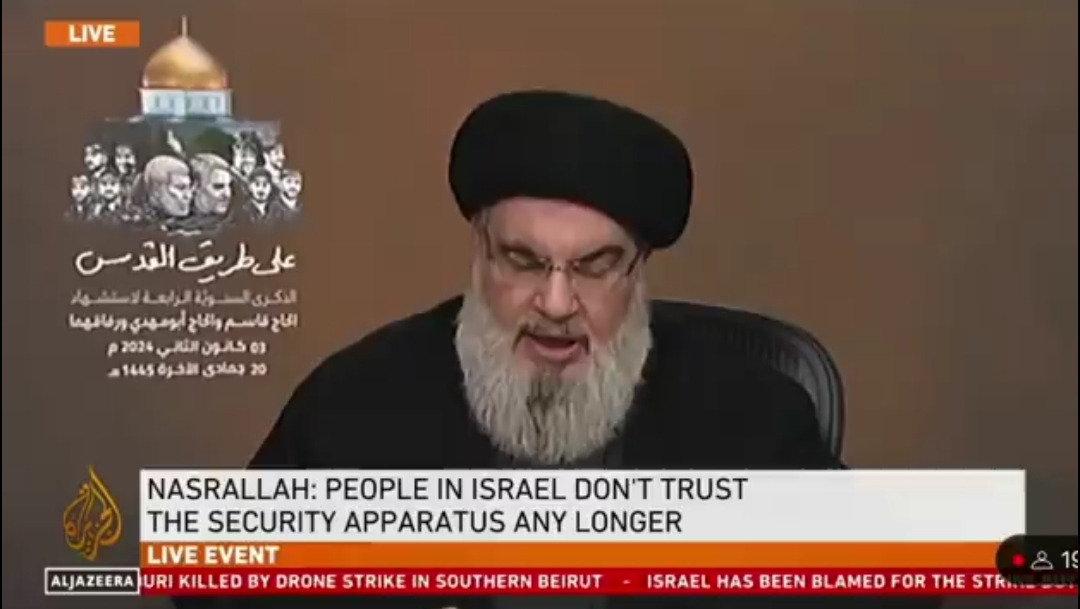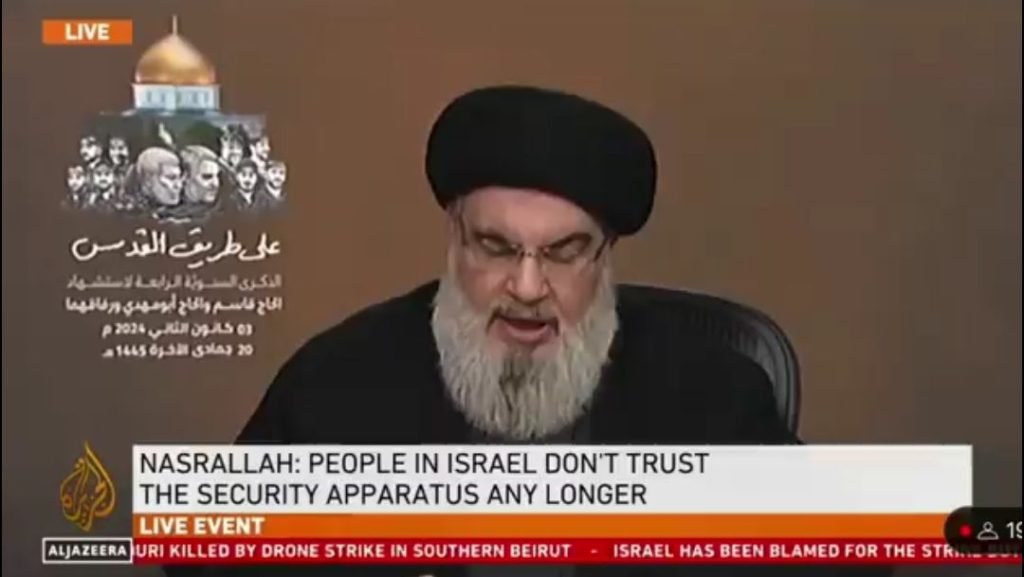
In a surprising turn of events, Hezbollah leader Hassan Nasrallah has delivered a provocative message to the Israeli population, urging them to return to the United Kingdom. The statement, made during a televised address, has ignited a flurry of reactions and speculation about the motives behind such a directive.

Nasrallah’s call for Israelis to “go back to the UK” is seen by many as an unconventional and somewhat puzzling move. The geographical reference to the United Kingdom adds an unusual layer to the message, prompting questions about Nasrallah’s intentions and the broader context of his statement. Analysts and experts are now dissecting the possible meanings behind this directive.
According to Lord Bebo one interpretation suggests that Nasrallah may be using the UK as a symbolic representation of the colonial history that led to the establishment of Israel. By invoking the UK, he could be attempting to highlight the historical ties between the British Empire and the formation of Israel in 1948. This perspective posits Nasrallah’s message as a political statement, seeking to underscore the perceived injustices of the past.
Another viewpoint speculates that Nasrallah’s call may be rooted in a desire for Israelis to reconsider their ties to the Middle East and their presence in the region. By urging them to go back to the UK, he could be advocating for a reevaluation of Israel’s role in the geopolitical landscape of the Middle East. This interpretation suggests a strategic motive aimed at reshaping regional dynamics.
The timing of Nasrallah’s statement also raises eyebrows, as it comes amid heightened tensions in the region. The Israeli-Palestinian conflict has been a longstanding source of discord, and Nasrallah’s message could be viewed as a calculated move to further polarize sentiments. The international community is closely monitoring the situation, and diplomatic efforts are underway to gauge the potential repercussions of Nasrallah’s directive.
Responses from Israeli officials have been swift and condemnatory. Prime Minister Benjamin Netanyahu characterized Nasrallah’s statement as “reckless” and “unfounded,” emphasizing Israel’s commitment to its existence in the region. The Israeli government has called for international condemnation of Hezbollah’s leader, further escalating the war of words.
While Nasrallah’s directive has undoubtedly added a new layer of complexity to an already volatile situation, the true impact of his message remains uncertain. It remains to be seen whether this call will escalate tensions or prompt a reevaluation of regional dynamics. As the international community navigates the delicate balance of diplomacy in the Middle East, Nasrallah’s statement serves as a stark reminder of the intricate web of historical, political, and ideological factors that continue to shape the region’s destiny.




